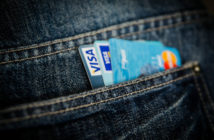The online gambling industry today is worth more than $50bn and security and safety are key to the sector’s continued success. Players want to know their games are fair and their money is safe, but with much of the industry based offshore, what is the reality?
Casinos are no strangers to hacking attempts, with one Finland-based hacker famously breaching the security protocols at a leading Las Vegas establishment in 2017 by installing malware on the electronic sensors in the building’s fish tanks and secretly transferring 10GB of private data out of the supposedly secure location before being caught. If an “offline” casino can be breached, then you can be sure that online poker and slots operators will be fending off attacks every second.
Established operators will employ similar security standards as banks and other financial institutions, with verified digital security certificates as standard, all data encrypted with 256-bit cryptographic protocols, and a variety of ID requirements to make sure players are who they say they are. Properly implemented, these technologies protect both the casino and the players, but not all casinos follow the same security standards and some lie about their operations.
Bad actors do not just target casinos and players need to be vigilant in choosing where to play games online. Many parts of the internet remain a “Wild West” where legitimate-looking websites and apps lure in players with lucrative welcome bonuses, but in reality the website operators could be fixing the odds of the games or maybe there are no games at all and the website operators will go suspiciously silent as soon as the player adds funds to their account.
To help protect players, many countries require gaming operators to apply for a license, with the UK’s Gambling Commission and Gibraltar’s Gaming Commission two of the most highly respected regulators. To obtain a license, operators are required to comply with a variety of technical standards to ensure their games are fair and systems secure, as well as a number of other rules in regards to social responsibility. And the regulators can and will impose significant fines against firms that fail to fulfil these standards.
However, many online casinos continue to operate outside the scope of national laws and boundaries. The rise and continued popularity of these unlicensed websites is a result of the strict anti-gambling laws in some countries, notably including the US, that push users towards unverified operators. Some of these websites do offer a fair and reliable gaming experience, but the reality is that even with effective random number generators the the introduction of blockchain technology to enforce the fairness of games, there is nothing to stop bad actors refusing to pay out winnings or simply selling on players’ credit card numbers if they operate offshore and outside the scope of any national law or international treaty.




